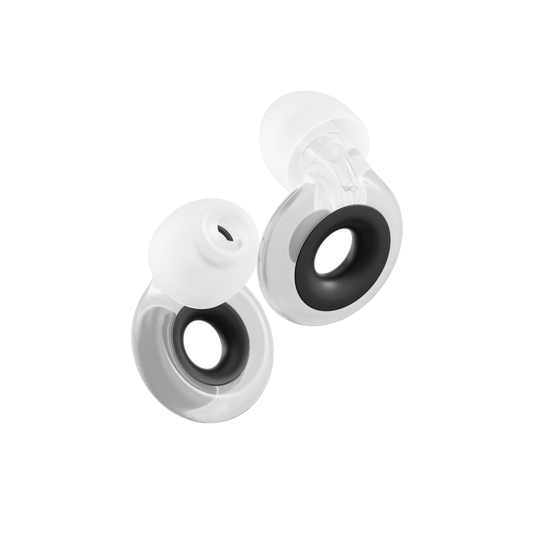If you’ve got tinnitus, we feel you. It can be difficult to deal with, and can be debilitating at times. But you’re not alone. We understand how hard it can be to live with the condition – but one of the keys to managing it effectively is understanding the condition.
We’ve gathered together all the information you need to know about tinnitus management, including its symptoms and triggers, and how to cope with tinnitus. Armed with the right knowledge and support, you can take control of your tinnitus and enhance your quality of life.


Understanding tinnitus symptoms and triggers
Tinnitus is a persistent ringing, buzzing or humming sound in the ears – but it’s the perception of a sound where there is none. That is, the ringing or buzzing is an internal sound rather than an external one. People with tinnitus may be low or high in pitch, and for some people, tinnitus can even affect their ability to hear external sounds.
As well as the frustrating ringing in your ears, tinnitus can also have other side effects, like fatigue, trouble sleeping, difficulty concentrating, anxiety and depression.
Tinnitus can be caused by various different things, including sinus infections, an ear canal blockage, problems with your blood pressure, or certain medications. But one of the most common causes is hearing loss, which can be either age-related or noise-induced. That means it can go hand-in-hand with the hearing loss that happens naturally as we age, or it can be caused by exposure to loud noises, either over a prolonged period or as a result of exposure to a single loud noise.
Ways to manage tinnitus
Because one of the most common causes of the condition is noise-induced hearing loss, one of the best ways of managing tinnitus is to reduce the chances of developing tinnitus in the first place by protecting your hearing with earplugs for tinnitus. If you’re a live music lover, for example, wearing concert earplugs can reduce the noise to a safer level, and make it less likely that you’ll leave the event with ringing ears.
If you already have the condition, then there are several things you can do to reduce your symptoms and improve your quality of life. This includes correcting any hearing loss, tinnitus retraining therapy, sound therapy and cognitive behavioral therapy.
You can also try tinnitus treatment at home. Some strategies include mindfulness practices like meditation, deep breathing exercises and yoga to reduce stress and promote relaxation, which can help to alleviate tinnitus symptoms.
Incorporating healthy habits into your routine like regular exercise, balanced nutrition and adequate sleep can also help to improve your wellbeing and reduce the impact of tinnitus on your quality of life.
Featured article


What is tinnitus?
Tinnitus can be annoying at best and debilitating at worst, but there are things you can do to help manage your symptoms and take control of your life.
Discover our best tips on managing tinnitus

How do I stop my ringing ears?
Sometimes when you come back from a loud party, you may feel something is not quite right with your hearing. Like you...

What is Tinnitus?
What is Tinnitus? Tinnitus is an audiological and neurological condition. It’s the perception of sound when no actual...

Understanding The Different Types of Tinnitus
There are various types of tinnitus, each with specific symptoms and treatments. Learn about tinnitus types in our co...

How to prevent tinnitus and protect your ears
Prevention is the best cure, right? And when it comes to tinnitus, properly protecting your ears can go a long way to...

Managing tinnitus? These apps can help it buzz off.
Explore the best-reviewed tinnitus apps to find relief and enhance your quality of life with expert insights.

Unveiling the Top 5 Causes of Tinnitus
Discover the top 5 causes of tinnitus and gain insights into why your ears ring. Expert advice for identifying trigge...

How is Tinnitus Diagnosed?
Learn about the diagnostic process of tinnitus, including tests and evaluations used by healthcare professionals.

Tinnitus: Does it Ever Truly Go Away?
Discover if tinnitus, the persistent ringing or buzzing in the ears, every truly goes away in our latest article































